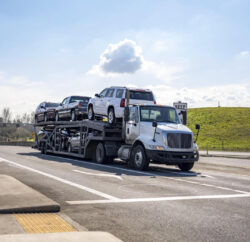Teens are well known for reckless driving and road accidents. If you feel it is really an exaggeration, consider the a large number of deaths and accidents on the highway. Statistically, the greatest auto-related accidents and deaths involve people between 15 and 24 years old. Consequently, insurance providers have offered car insurance to teens and youthful adults in a high cost.
Teens have various habits which make them vulnerable to road accidents. People throughout their lively years have a tendency to communicate a lot over the telephone whilst driving. They are usually ridiculously adventurous. Additionally they have a tendency to disobey safety driving reminders. Youthful people also emerge from parties drunk after which enter into their cars. They are several reasons why they often finish in emergency rooms with damaged braches or mind and neck injuries, as well as their cars finish up mangled across the road.
Statistically, driving is riskiest during specific situations. Teens and beginning motorists should be aware of those situations.
1. When driving during the night. Amateur ability to drive can be a bit difficult during dark conditions. It requires several weeks of driving to come to terms with evening road conditions.
2. When with buddies. Teens like to spend time with buddies, along with a high number of teenybopper vehicle accidents happen when the first is driving with buddies. Surveys state that teens are safer when driving alone or with your family. Like a safety precaution, teens shouldn’t take passengers when they’re still your driving practise. Buddies function as effective distracters towards the novice driver.
3. When driving just for fun. Again, novice motorists should spend their “becoming accustomed to” stage by driving to college or home. Taking a pleasure ride is frequently not recommended.
4. If not using safety gear. Safety belts aren’t there for display only.
5. When sleepy. Many reported vehicle accidents happen since the driver was sleepy. Motorists on the highway ought to be completely alert. Sleepiness retards reflexes.
6. When drunk. Alcohol also impairs the individual’s cognition and responses. “Don’t drive after drinking” is not only a cliché.
7. When intoxicated by prohibited drugs. There’s you don’t need to explain this.
8. When utilizing cell phones. Making calls or delivering texts while driving makes you get off track.
9. When eating or consuming. These activities also cause you to lose your focus while driving.
Teens ought to be well led while in happens of finding out how to drive their automobile. Parents should impose vehicle driving discipline for their sons and kids. Teens, however, must take heed. The majority of road accidents are due to recklessness. These accidents could have been avoided if people driving were only following a rules.
It might be simple for parents to obtain vehicle insurance for his or her teenage kids. But it should be described to teens that simply since they’re insured, it does not mean they may be careless. The insurer may pay hospital bills and vehicle repair charges following the accident, however a damaged rib or knee might not be well worth the fun.





















